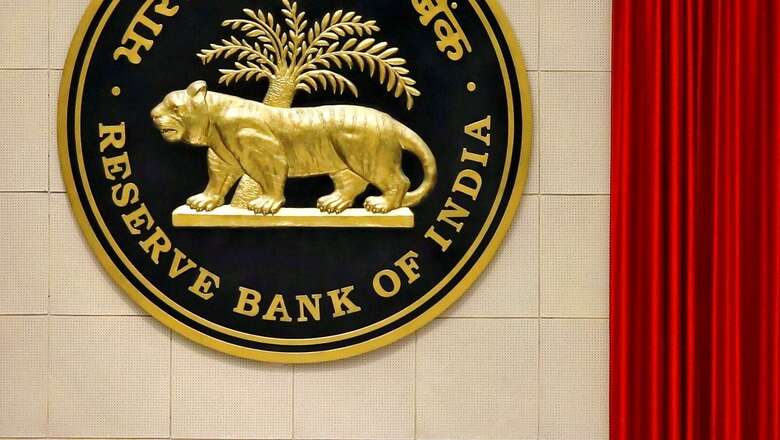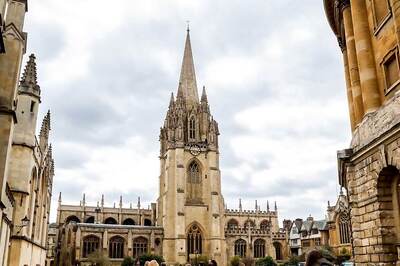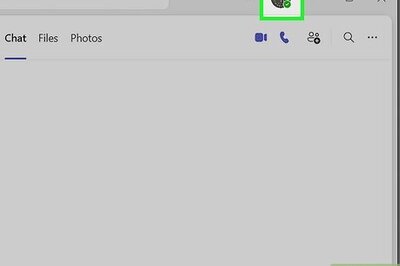
views
Reserve Bank of India (RBI) governor Shaktikanta Das Wednesday said it held an off cycle-meeting amid high inflation and voted to increase the repo rate by 40 basis points, citing persistent inflationary pressures in the economy. Further, in keeping with the stance of withdrawal of accommodation, it has been decided to increase the Cash Reserve Ratio by 50 basis points to 4.50 per cent, said Shaktikanta Das. CRR hike can suck out liquidity to the tune of Rs 83711.55 crore, he said. CRR hike will be effective from midnight of May 21.
As per the announcement made, the RBI has hiked the repo rate by 40 bps up to 4.40 per cent from 4 per cent earlier. The last time the repo rate was cut was in May 2020 and has been kept unchanged since then. The hike will come into effect immediately. Further, the Cash Reserve Ratio (CRR) has been hiked by 50 bps which will exert further upward pressure on interest rates.
What is Repo Rate and Why Is It Important
Every time commercial banks fall short of funds, they approach the RBI to borrow money. The RBI lends money to these banks at a particular rate which is known as the repo rate. The RBI decides periodically whether to hike/slash the rate or leave it unchanged. The central bank’s monetary policy committee’s decision could impact liquidity and inflation in the Indian economy.
The repo rate is a very important tool for the RBI to control inflation trends. Raising or cutting the rates by the RBI will make borrowing more expensive or cheaper for commercial banks. The repo rate and inflation have an inverse relationship. If the rate is increased, it will bring down inflation and if the rate is lowered, inflation will go up.
What It Means For Home Loan, Auto Loan Borrowers
RBI’s surprise move to increase repo-rate will make your bank increase interest rates on loans. So, your home loans, and auto loans are set to become costlier. If you are planning on taking a loan, then you better do it soon, as interest rate on loans could start increasing soon.
Atul Monga, Co-Founder & CEO, BASIC Home Loan, said: “The hike in repo rate is a calculated measure that RBI has taken to combat inflation and the current impact on the economy. The increase in the repo rate means that people might have to pay a slightly higher interest rate if they take out a home loan. However, this move may not have a major impact on the home loan market as of now since there are many other factors like demand and supply, and buyers, which play a major role in driving rates. But, if the repo rate hike continues to remain high, then it may have an effect.”
The repo rate hike means bad news for existing borrowers as banks and NBCFs which will soon start increasing interest rates on loans, which means that the loan EMIs will also go up. All loans will be impacted by the latest policy decision, be it a home loan, car loan, or personal loan.
Naveen Kukreja – CEO & co-founder, Paisabazaar.com, explained: “The 40 bps hike in the repo rate by the MPC would increase the credit cost for both existing as well as fresh borrowers. The impact would be swifter on those planning to avail home loans or any other loans linked to the external benchmark rates, especially the repo rate. The interest rates for existing borrowers linked to repo rate or any other interest rate benchmarks, both internal as well as external, would remain the same till the next reset date of their loans. The new interest rate on their reset date will be calculated after factoring in the benchmark rate applicable on the reset date and credit spreads. This new interest rate will then remain in force till the next reset dates of their loans, irrespective of any repo rate changes by the RBI in the interim. The repo rate hike would not impact any loans availed at fixed interest rates.”
Read all the Latest Business News here

















Comments
0 comment